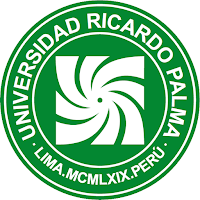Resonance of French Poetry in The Black Heralds
Resonance of French Poetry in The Black Heralds Resonance of French Poetry in The Black Heralds
Article Sidebar
Main Article Content
Marie-Madeleine Gladieu
Abstract
Without doubt romantic and modernist, Spanish and Hispanic American poets influenced César Vallejo, but reading poetry books from French authors of the XIXth century and beginning of the XXth, romantics, parnassians, symbolists, etc., certainly impacted the Peruvian poet. María Rosa Sandoval read in French for the group of young poets pieces of poetry from Baudelaire, Nerval, Verlaine, Samain, Laforgue, Mallarmé… Vallejo heard these texts, and read also other authors as we shall observe, especially «Un coup de dés», that awoke in his sensibility series of resonance proceeding from French sounds —cf. The music for Verlaine— that the poet interprets in his poems in different situations and imagery. Some examples of resonance remember Romanticism, avant-garde movements, other ones are more original and personal. Whatever many examples of pure sounds in Trilce seem to confirm that in the first poetry book, sounds and their resonance are important for César Vallejo’s poetic creation.
Article level metrics
Downloads
Metrics
Article Details

This work is licensed under a Creative Commons Attribution 4.0 International License.
La revista utiliza una licencia Creative Commons para mostrar a los lectores y a los usuarios cómo se pueden utilizar los contenidos publicados.
Los contenidos publicados en la revista están bajo una licencia CC-BY 4.0, la cual permite:
- Compartir, copiar y redistribuir el material en cualquier medio o formato.
- Adaptar, remezclar, transformar y construir a partir del material para cualquier propósito, incluso comercialmente.
Bajo los siguientes términos:
- Atribución. Usted debe dar crédito de manera adecuada, brindar un enlace a la licencia, e indicar si se han realizado cambios. Puede hacerlo en cualquier forma razonable, pero no de forma tal que sugiera que usted o su uso tienen el apoyo de la licenciante.
La información de licencia se muestra e incrusta en las páginas de artículos y en ficheros de texto completo como sigue:
«Este obra está bajo una licencia de Creative Commons Reconocimiento 4.0 Internacional».
Baudelaire, Charles (1974). Les fleurs du mal. París: Presses de la Renaissance.
Bonnefoy, Yves (2016). L’écharpe rouge. París: Mercure de France.
González Viaña, Eduardo (2009). Vallejo en los infiernos. Presentación de Antonio Melis, proemio de Nicanor de la Fuente. Lima: Fondo Editorial del Congreso del Perú.
Conde de lautréaMont [duCasse, Isidore] (2009). Oeuvres complètes. Édition établie, présentée et annotée par Jean-Luc Steinmetz. París: Gallimard (Pléïade).
Maeterlinck, Maurice (1907). L’intelligence des fleurs. París: Fasquelle. PDF disponible en <https://archive.org/details/intelligencedes00maetuoft>.
Mallarmé, Stéphane (1976). Igitur. Divagations. Un coup de dés. Edición y prólogo de Yves Bonnefoy. París: Gallimard.
Nietzsche, Friedrich (1969). Ainsi parlait Zarathustra. Edición bilingüe. Traducción del alemán por Geneviève Blanquis. París: Aubier Flammarion.
Vallejo, César (1997). Poesía completa I. Edición, cronología, prólogo y notas de Ricardo Silva-Santisteban, presentación de Salomón Lerner Febres. Lima: Pontificia Universidad Católica del Perú.










